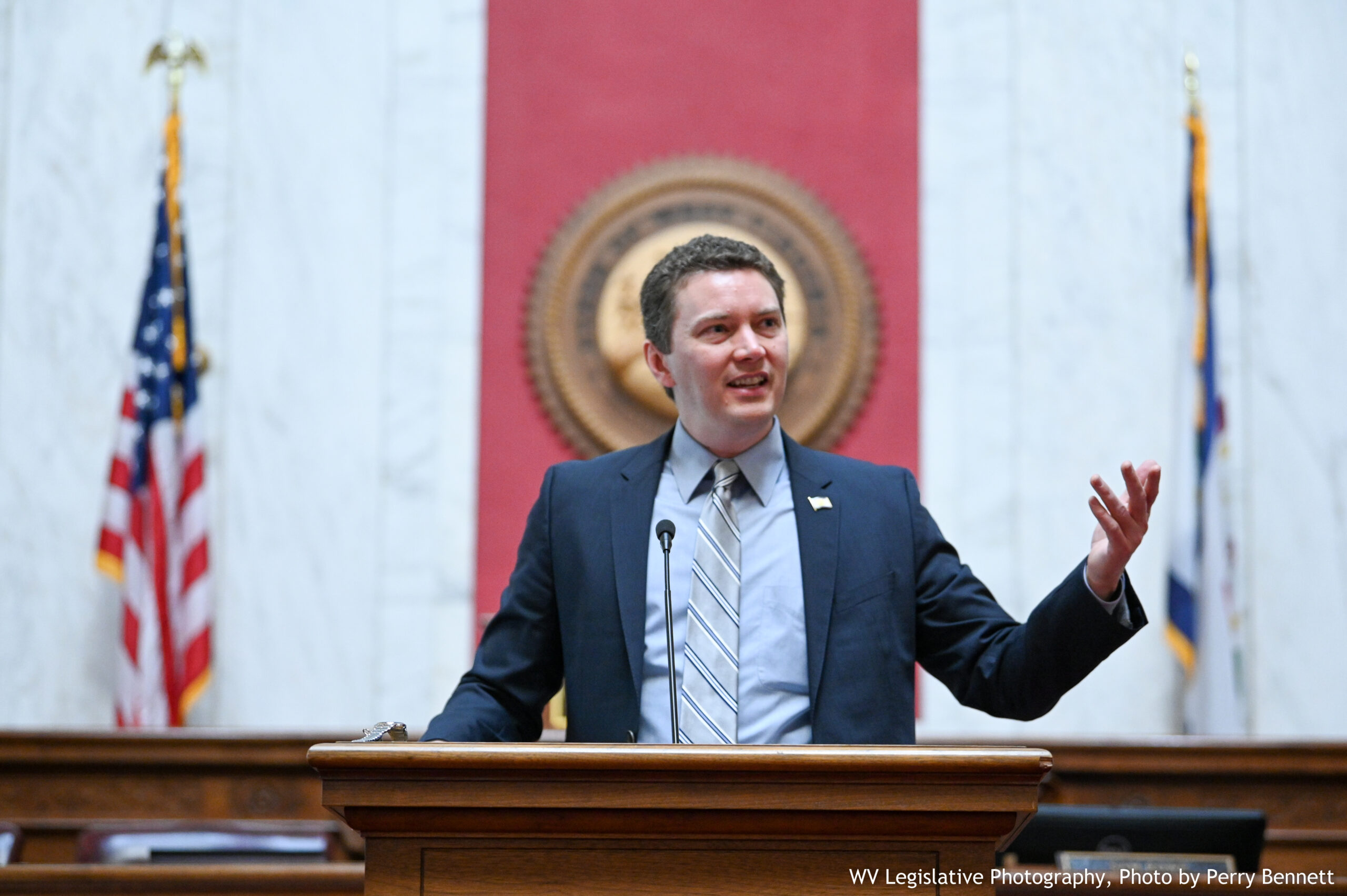CHARLESTON – WVU economics professor John Deskins kicked off the 2020 legislative session with his annual state economic outlook.
His points were similar to those of previous years: promote economic diversity; promote manufacturing, particularly downstream petrochemical manufacturing so we can benefit from our natural resources here instead of exporting them; promote entrepreneurship; provide education and training so people who aren’t working can have the skills and incentive to go to work.
“Even though we’re growing, we shouldn’t lose that urgency,” he said. “We still have problems to fix.”
His based his presentation on the West Virginia Economic Outlook 2020-2024, produced by the Bureau of Business and Economic Research, which he directs.

The state has seen about 11,000 new jobs, he said, but 10,000 of those are confined to just seven counties: Monongalia, Harrison, Lewis, Marshall, Cabell, Raleigh and Berkeley. And about 8,000 of the jobs added were energy related/; coal, gas and pipeline construction.
Coal production will remain steady or decline slightly, he said. But with the steady decline of coal-fired power plants, the industry has been relying more on exports, which is a volatile market.
Natural gas pipeline production boomed in recent years, he said, but isn’t adequate yet. “The supply is there. The demand is there. The whole issue is getting infrastructure in place.”
The state economy is still heavily dependent on energy, he said, and lacks the diversification to maintain a balance through the boom and bust cycles.
“The real way to diversify is through entrepreneurship,” he said. As always, a large number of startups will fail, but those that succeed will provide the base for diversification. He urged the legislators to take advantage of what the business schools around the state can offer.
For instance, WVU has Vantage Ventures, which is intended to connect untapped talent and ideas with processes to reach the market. Vantage Ventures is aimed at companies designed ot serve the digital economy.
Statewide unemployment stands at about 5%, he said. It’s a bit higher than the U.S. average, but still relatively good. More important is the workforce participation rate: those who can work but aren’t trying.
The national participation rate is 63%, he said, while West Virginia ranks dead last at 54%. Even factoring out retirees and students, we still rank last. “We can never be where we want to be … if we have 9% of the people sitting on the sidelines compared to national figure.”
Employers look for a healthy, educated, drug-free workforce, he said. And we have challenges in those areas. For example, only 55% of West Virginia high school graduates head to college, compared to 66% nationally. We have the highest drug-related death rate: about 58 per 100,000 compared to about 20 nationally.
Deskins cautioned that West Virginia doesn’t have a single economy. It has regions: the panhandles, north central, the Metro Valley, the southern coalfields and so on. So development can’t be one size fits all. Economic strategies have to embrace the differences and target each region’s strengths and weaknesses.
TWITTER @dbeardtdp Email David Beard at dbeard@dominionpost.com




